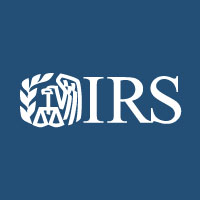Getting out of "Roth" IRAs
What benefit is statutory tax shelter with a different family name that is not yours on your hard-earned assets?
I am neither a financial adviser, nor a lawyer, nor yet a tax accountant. Since I am neither a Roth nor married to a Roth, I just don't see why I would want that name slapped on my assets, presumably to save a few tax dollars far in the future based on present assumptions of future tax legislation.

From Google AI overview: The "Roth family" can refer to two distinct groups: the Rothschild banking dynasty and the Roth family of Pennsylvania, known for their business and philanthropic activities in Pittsburgh. The Rothschild family is a prominent European banking family with a history tracing back to the 18th century. The Roth family in Pittsburgh is a Jewish family with roots in Austria, known for their involvement in the R&R Furniture Company and their contributions to the Jewish community.

Presumably anyone of any family name earning "wages" or "salary" under a certain limit can open a "Roth IRA," fund it with non-deductible retirement contributions, and withdraw it tax free in retirement. The "principal" accounted on a first-in-first-out basis supposedly can be withdrawn tax free and penalty free any time after any Roth IRA account has been open a certain number of years. The "interest," legally the amount withdrawn in excess of prior contributions, is subject to some taxes and penalties if withdrawn prior to retirement or not as part of substantially equal distributions, but the rules are hazy and wishy-washy. (Traditional IRAs on the other hand are considered untaxed money to be taxed as income at the time of distribution or withdrawal in retirement.)
Referring to the Google AI overview we get from a search for "Roth family" we have to go with the banking dynasty due to the fact that that name is being placed on so many financial assets.
Some children of that family presumably would have inherited some assets in a will or trust designated informally as "for the kids" or "for the children" of that family, and would have taken on the "child" designation as part of a new family name at some distant point in the past. It is not really a substantial change to a family name merely to indicate that one is a "child" of that family.
To use a particular family name like that in a legal context merely as being synonymous with money, but without regard to the actual individual and/or family ownership of the money.
What Is a Roth IRA, and Is It Right for Me?
By TRG Advisors on May 29, 2025
Roth IRAs are named after former Delaware Senator William V. Roth, Jr., who was instrumental in legislation passed into law in 1997 that established the account type — allowing individuals to invest after-tax income into IRAs that can be withdrawn tax-free in retirement. — [emphasis added]

So spread it out and cook the books on your taxes to convert a Traditional IRA to a Roth IRA. 100% legal and in accordance with industry standard professional advice. No way back out, because once you've paid your taxes on the money, you aren't getting your money back.


